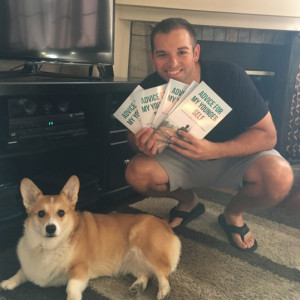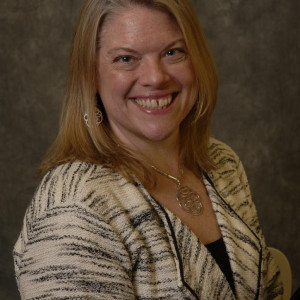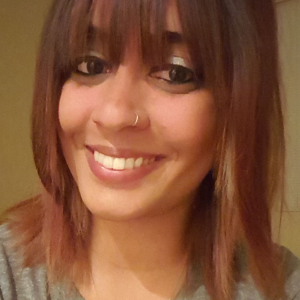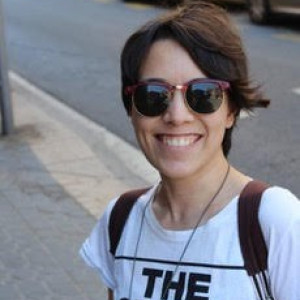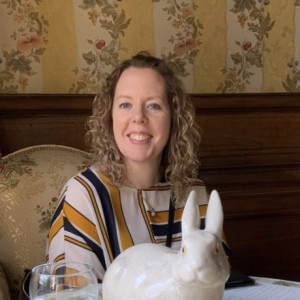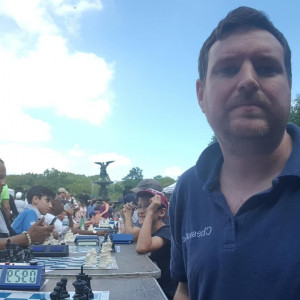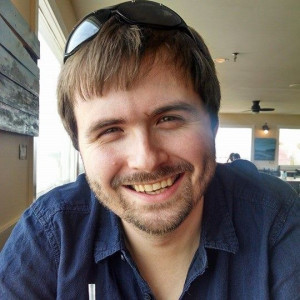What's your typical work routine?
Interview with Taylor, a marketing director and intentional digital nomad
Currently, I'm based in Durham, North Carolina and travel approximately every two months. When I'm on the road, my routine is more atypical.
However, when I'm at home, this is my routine:
-
6:45ish am - I naturally wake up early, and ideally without an alarm. This time is when I'm at my best physically and mentally.
-
7:45ish am - I bike from my apartment to WeWork in downtown Durham. It's only a mile and a half away, and Durham's relatively temperate climate means I can bike to work year-round. Fortunately, I only feel like a popsicle sometimes.
-
8 - 11 am - This is time for deep work. I don't schedule calls before 11 am if I can help it.
My morning hours are sacred to me, they're the hours in which I feel most successful and effective.
-
11 am - 12 pm - I conduct calls with my team. This happens about three times a week. If I don't have a call, I'm usually taking this time to do lighter brain work. I may also FaceTime with a friend, or take a walk. Deep work is wonderful, but I have to give my brain time to decompress.
-
12 - 1 pm - This is my lunchtime. I usually work through lunch, unless I'm eating with a friend, because I like to finish my to-do list by mid-afternoon.
-
1 - 3 ish pm - I handle less deep work tasks related to communications, marketing, and operations.
-
3ish pm - I prepare to bike home. Sometimes this happens at five or six in the evening. However, I try to really focus in the morning so that I've accomplished what I need to in six hours, not eight.
After work, I handle side projects, play guitar, read, run errands, work out, cook, or hang out with friends for the rest of the day.
Taylor shares how co-working spaces, digital nomadism, and work flexibility gave her the work environment she always wanted.
Read full interview from Interview with Taylor, a marketing director and intentional digital nomad.
Interview with Kay, an independent software consultant who found freedom in remote work
Somehow my work-"day" begins the day before.
I think about a big chunk of work I want to do on the next day and then I go to sleep.
Then I wake up and drink a coffee at 12 and start working on the stuff I thought about the last night. Sometimes customers wrote emails in that time and I try to work on their requests before I get to that work I had planned.
Learn how Kay made the jump from full-time employee to full-time remote consultant
Read full interview from Interview with Kay, an independent software consultant who found freedom in remote work.
Interview with Michael about being an entrepreneur and freelancer
Here is an overview of my work routine:
- Personal, 1 hour morning routine (journal, meditation, etc)
- Exercise (run or resistance training) (30-60 mins)
- Write / Create content — can start anywhere from 7-9am. I prioritize my projects the night before always doing the hardest, most time consuming or least "fun" piece of work first. This builds momentum and makes sure I accomplish the biggest task first.
- I've found I write best fasted, only drinking coffee and water until noon. I break around 12 for a light lunch, walk the dog, get outside, and back to writing. Usually done by 2-3pm depending on deadlines.
- My writing usually takes place Mon, Tue, & Thur. I edit content, promote my blog, and do other projects on Wed/Fri (never write and edit on the same day).
- Rarely, if ever, write on weekends instead focusing on off time and creating urgency during my week to get everything completed. I try to set specific time blocks to complete my writing or other projects. Without a set time it's easy to procrastinate and make a small task seem huge.
My routine is constantly changing over time. I think it's important to have it adapt to create maximum efficiency and still mix it up. I write primarily in my office but do go to coffee shops and hotels to get out and mix up the environment.
Michael is an online entrepreneur, author, and freelance writer who specializes in self-improvement and personal finance.
Read full interview from Interview with Michael about being an entrepreneur and freelancer.
Interview with Pamela, a travel writer adjusting to freelancing
I go to an exercise class in the morning, then get showered and dressed and start working. I don’t have set hours yet. Sometimes I work in the evening or on the weekends.
I’m spending a lot of time researching how other people do things as well as taking time to network.
Pamela is new to the world of freelancing. In this interview, she shares the ups and downs of adjusting to the gig economy.
Read full interview from Interview with Pamela, a travel writer adjusting to freelancing.
Interview with Chloe, a customer support freelancer and multi-project expert
My typical workday is pretty hectic. I have one project with a set schedule, and my other three are flexible. I don’t mind either type of schedule, so it depends on the project.
If the team is small, one or two people, flexible is preferred. However, with a larger team, I prefer a set schedule. Usually, my day looks something like this:
- 5 am to 7 am: Morning check in with my part-time projects
- 7 am to 3 pm: Set schedule project
- 3 pm to 8 pm: Night check in with part-time projects
Chloe uses the flexibility of freelancing to her advantage—see how she successfully manages multiple projects at one time.
Read full interview from Interview with Chloe, a customer support freelancer and multi-project expert.
Interview with Andrew, a freelance writer who works remotely
My routine is about the same each day.
First off, I don’t work regular hours too often because I’m a night owl at heart. Working the 9-5 life was always tough because I hated having to get up in the morning.
I don’t really feel like I hit my mental peak until around 11 at night, so working freelance lets me work those hours no problem.
A typical work day starts with me checking my master list of work and figuring out which jobs need to be handled next.
I tend to work with checklists, trying to get a certain number of words written per day instead of focusing on working a certain amount of hours. Hitting number targets give me incentives to work quickly and more efficiently, as opposed to hitting an hour target.
Andrew became a full-time freelance writer after experimenting with freelance marketplaces. After the first month, he was already earning more than his full-time job.
Read full interview from Interview with Andrew, a freelance writer who works remotely.
Interview with Cecilia, a content writer managing her remote career in Dubai
I like to plan my day the night before, so when I wake up the next morning, I'll have a pretty good idea of what I can expect and what needs to be done.
I wake up at about 6 or 7 am. Sometimes I may go for a walk if I wake up early enough, but most of the time, I just go straight to making breakfast and writing my morning pages. There, I write down my long-term goals and what I can do today to achieve them, and then I add whatever's on my mind at that moment.
Then, I start working at about 8 or 9 am, depending on the amount of work.
The first thing I do is to block all distractions and set a timer to work in blocks of 25 minutes. After one or two blocks, I take a break.
I eat lunch at home. Since I enjoy cooking, it's not a problem for me to make a quick meal. After my lunch break, I work for another couple of hours, until 5 pm. After that, I may go out for a run or to a yoga class.
In the evenings, I still have to work for about an hour for a client located in the US. But when I'm done with my evening tasks, I can relax or spend some time working on personal projects, like writing a blog post or a short story.
Cecilia got her start translating blog posts, and in 2018 she went fully remote. See her tips for managing an international remote work career.
Read full interview from Interview with Cecilia, a content writer managing her remote career in Dubai.
Interview with Emma, a freelance marketing consultant
Well, unfortunately, I think I’ve been groomed too much by the 9 to 5! So I tend to start work around 8.30 am as if it was an office job, take lunch around 1 pm and do the whole Monday to Friday thing as well.
My big non-office things, however, are that I make sure I get some exercise every day, and I do tend to do work on the weekends as well just because it’s quieter and there aren’t as many emails coming in.
Oh, and I find I work longer in the evenings as well, just because I don’t like to leave things unfinished!
Emma is thriving as a freelance marketing consultant—see her tips on managing client demands & making yourself marketable as a freelancer.
Read full interview from Interview with Emma, a freelance marketing consultant.
Interview with Leon, a journalist teaching the world to play chess
My first task of the day is to drop off my toddler to the nursery, something I was never able to do when I worked in central London because I had to leave too early.
After dropping off the little monkey, I get back to my house at about 8.30 am, sit down in my home office, and fire up my machine. With a coffee, of course.
I usually start the day by solving a few chess puzzles on Chessable to get the little grey cells working (chess puzzles are a big part of chess training as they keep you sharp) and then look into any emails we've received overnight.
This can be customer support, replies from authors or just general chat. An important part of my job is just knowing what's going on in the chess world so I can keep on top of new developments throughout the day.
As I work from home I'm rarely at the big chess competitions as going to them would involve flying around the world which unfortunately the company is not yet big enough to pay for. So interacting with people on Twitter and visiting various chess sites is very useful.
On days we release new courses I will spend most of my time preparing the marketing emails and a social media campaign. They need to be spot on, so I need to know the content of the course very well.
Our courses vary in cost, but my job is to let people know we have a particular book that we have converted into a course. On days that we do not have a new release, I will assist with the process of adapting the courses and getting our next one ready.
All through this, I will be trying to think of new ideas to get Chessable some publicity in the chess press by using my journalism background to find ways that we can talk about our training platform.
Leon James Watson is a former journalist who has found the intrinsic value of remote work while teaching the masses to play chess.
Read full interview from Interview with Leon, a journalist teaching the world to play chess.
Interview with Steven Wade, a software engineer working on a remote team
I'm married and have a toddler. I wake up by 7am, feed the kid, hang out with her for a while, then shower. I usually start work anywhere between 8-8:30. Then I'll work from my dining room table for a while so my wife can get ready for the day in peace (my daughter will just watch Mickey).
I like to keep my mornings free for remote remote work. That is, my wife and daughter will go to the pool, the mall, downtown, shopping, or to do fun activities. Sometimes I'll join them as an early "lunch" break, or most of the time I'll just take them there and then work from my laptop while tethered on my phone.
Lunch and the afternoons are pretty routine and I save most of my productivity and meetings for that time as I know those schedules won't often change.
Being able to spend time with my family little bits here and there throughout the day is important, so I usually end up taking 2 hours during the day for lunch and other things.
I have a hard stop at 5pm. That's when I do dinner, chores, spend time with the family, run errands, etc... After I put my daughter to bed and spend time with my wife, I will generally hop back online and work for another hour or so (depending on how much fun I'm having with the work at that time).
I keep a pretty consistent schedule, with times built in to be flexible.
Learn more about how Steven works remotely, including his work routine, habits and how he found his remote job
Read full interview from Interview with Steven Wade, a software engineer working on a remote team.

